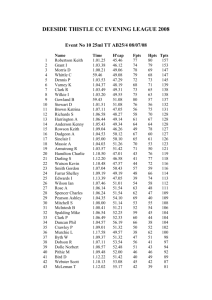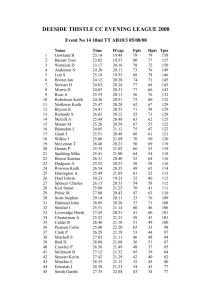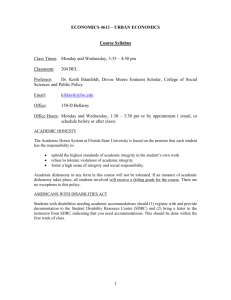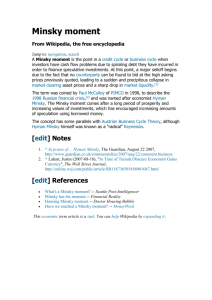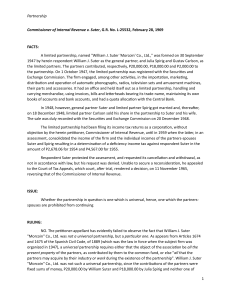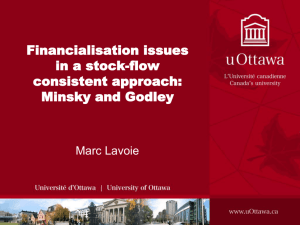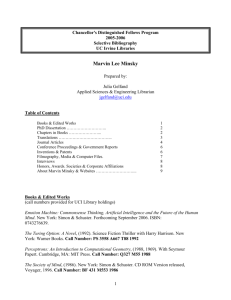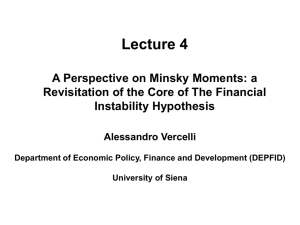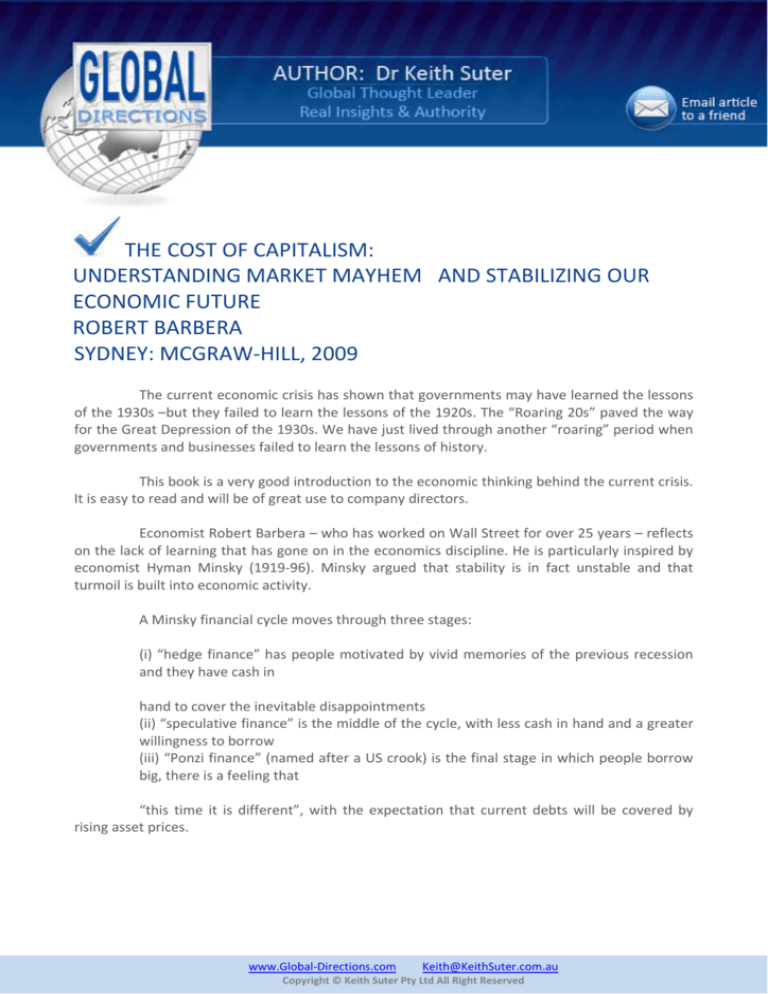
THE COST OF CAPITALISM: UNDERSTANDING MARKET MAYHEM AND STABILIZING OUR ECONOMIC FUTURE ROBERT BARBERA SYDNEY: MCGRAW‐HILL, 2009 The current economic crisis has shown that governments may have learned the lessons of the 1930s –but they failed to learn the lessons of the 1920s. The “Roaring 20s” paved the way for the Great Depression of the 1930s. We have just lived through another “roaring” period when governments and businesses failed to learn the lessons of history. This book is a very good introduction to the economic thinking behind the current crisis. It is easy to read and will be of great use to company directors. Economist Robert Barbera – who has worked on Wall Street for over 25 years – reflects on the lack of learning that has gone on in the economics discipline. He is particularly inspired by economist Hyman Minsky (1919‐96). Minsky argued that stability is in fact unstable and that turmoil is built into economic activity. A Minsky financial cycle moves through three stages: (i) “hedge finance” has people motivated by vivid memories of the previous recession and they have cash in hand to cover the inevitable disappointments (ii) “speculative finance” is the middle of the cycle, with less cash in hand and a greater willingness to borrow (iii) “Ponzi finance” (named after a US crook) is the final stage in which people borrow big, there is a feeling that “this time it is different”, with the expectation that current debts will be covered by rising asset prices. www.TheGlobalFactor.com.au Keith@KeithSuter.com.au www.Global‐Directions.com Keith@KeithSuter.com.au Copyright © The Global Factor Pty Ltd All Right Reserved Copyright © Keith Suter Pty Ltd All Right Reserved For example, recent potential home owners were reassured that house price will always keep increasing. They therefore became more and more adventurous in what they borrowed – and in the last year or so the housing bubble burst (just as Minsky would have predicted). The book deals with a basic fault line in economics. For “classical” economists, the market always works well and so government should keep away. For “Keynesians” the market cannot be trusted to always function well and so government has a continuing role. The book agrees that overall the market is the best way to guarantee economic growth (and Barbera looks at the failure of communism) – but free market economies suffer with remarkable regularity from boom and bust cycles. Thus economics is different from science. Once scientists established that the earth revolved around the sun, no one argued 50 years later that we should go back to the old theory. Unfortunately economics doesn’t advance in that way – after a few decades with one theory, it is possible to slide back to where we had been. One of the “take out” messages for me from this book is the importance of teaching economic history to economics students. It is a great pity that this seems to be a disappearing subject at Australian universities. Keith Suter FAICD www.Global‐Directions.com Keith@KeithSuter.com.au Copyright © Keith Suter Pty Ltd All Right Reserved

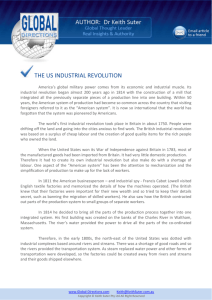
![[#SWF-809] Add support for on bind and on validate](http://s3.studylib.net/store/data/007337359_1-f9f0d6750e6a494ec2c19e8544db36bc-300x300.png)
